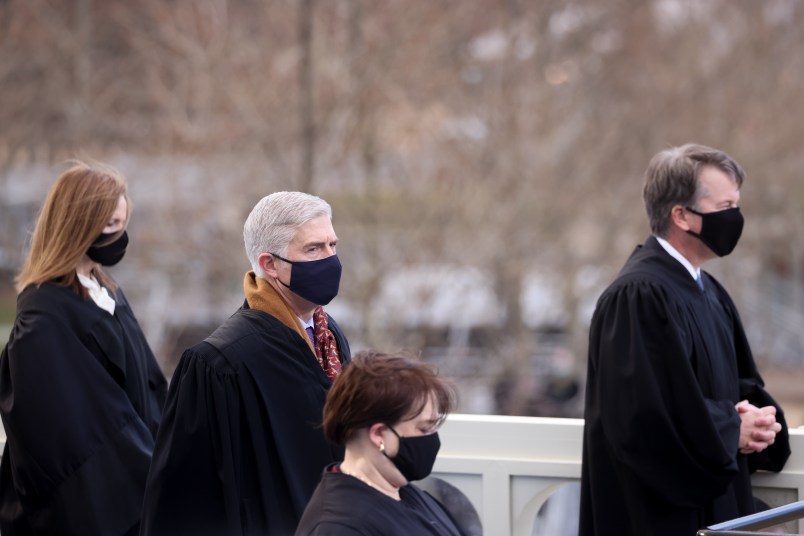The newly Republican-dominated North Carolina Supreme Court will rehear a major redistricting case at the heart of one of the biggest Supreme Court decisions expected this year.
The state court could render the case moot, after the Supreme Court heard it in early December. The justices’ decision was expected this summer.
The case, Moore v. Harper, was one of the most closely watched on the Supreme Court’s docket this term due to its potentially massive ramifications for how the United States conducts elections. The North Carolina legislature’s lawyers, representing the Republican majority, pushed the independent state legislature theory, the idea that the state legislature — to the exclusion of nearly all other organs of state government, including state constitutions and courts — gets to govern voting, election administration and redistricting.
In one of the weakest points of their argument, the legislators say they support the gubernatorial veto being part of the process otherwise solely determined by the state legislature — a contradiction about which both Chief Justice John Roberts and Justice Amy Coney Barrett expressed intense skepticism during oral arguments.
The lukewarm response of the justices may explain why the state legislators are willing to gamble on removing it from the high Court’s docket: if the Court, as it seemed during oral arguments, is heading towards a compromise, split-the-baby decision, North Carolina Republicans may want to settle for the consolation prize of a greenlight to pass partisan gerrymanders in the state for now. With the hugely important 2024 elections on the horizon — and the amenability to the theory expressed by four of the right-wing justices — it seems very likely that another ISLT case will inevitably reach the Supreme Court at some point soon.
The two Democrats left on the North Carolina Supreme Court dissented, calling the decision to rehear the case at the legislators’ behest a “radical break with 205 years of history.”
“Nothing has changed since we rendered our opinion in this case on 16 December 2022: The legal issues are the same; the evidence is the same; and the controlling law is the same,” writes Justice Anita Earls, joined by Justice Michael Morgan. “The only thing that has changed is the political composition of the Court. Now, approximately one month since this shift, the Court has taken an extraordinary action: It is allowing rehearing without justification.”
She systematically picks apart the “examples” the majority lays out of other cases it’s reheard, dismissing them as not having been decided “in this millennium” and resting upon a “fictitious standard.”
“The majority has cloaked its power grab with a thin veil of mischaracterized legal authorities,” she concludes. “I write to make clear that the emperor has no clothes. Because this Court’s decision today is an affront to the jurisprudence of this State and to the citizens it has sworn an oath to serve ‘impartially,’ ‘without favoritism to anyone or to the State,’ I dissent.”
Read the order here:



